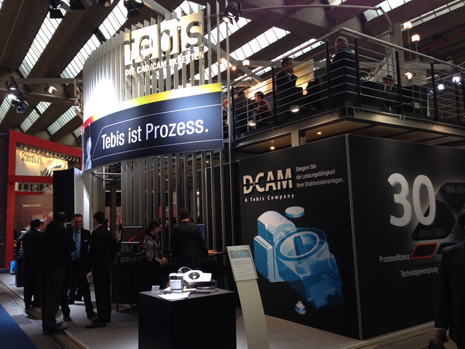
For three days last week (4-6 December) Develop3D went over to Euromold – dubbed as one of largest trade fairs for mouldmaking and tooling, design and application development.
Taking place in the colossal Frankfurt Exhibition Centre, more than 1,000 exhibitors gather to present the entire process chain from design to prototyping to series production.
Even before entering I knew the exhibition was going to be huge when I was handed an exhibitor manual the weight and size of the yellow pages. But it’s not just the number of exhibitors and the three huge halls that accommodate them, but the size of the stands themselves. Companies like Tebis (above) have double-decker stands.
Here is a brief snapshot of what jumped out at me.
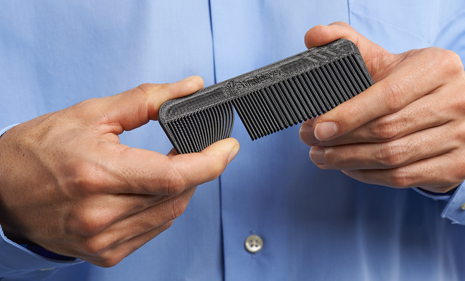
I spent quite a bit of time on Stratasys’ stand talking about its latest 3D printing solutions. I was shown the digital injection moulding factory that demonstrated how digital ABS moulds can withstand the high pressures and temperatures of a micro injection moulding machine.
However, the big news for the show was the launch of FDM Nylon 12, the first nylon material specifically engineered for the company’s line of Fortus 3D Production Systems (above).

Then just over the way from Stratasys was SLM Solutions, which has to get the award for the most inventive stand design. The beach theme was complete with lighthouse, beach hut, deck chairs and sea sand. Not entirely sure what the beach has to do with additive manufacturing other than perhaps attract visitors to the stand to showcase its latest machine – the PSA 500 with its new system for automatic powder recovery.
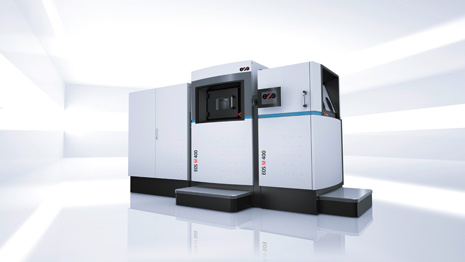
I couldn’t walk past EOS’ stand and not enquire about this huge machine – EOS M 400.This modular metals laser sintering machine with its build volume of 400 x 400 x 400mm which means customers (most likely in the aerospace or automotive industries) can produce large metal parts on an industrial scale. On the stand it had a rather large oil separator for a racing car built in aluminium.
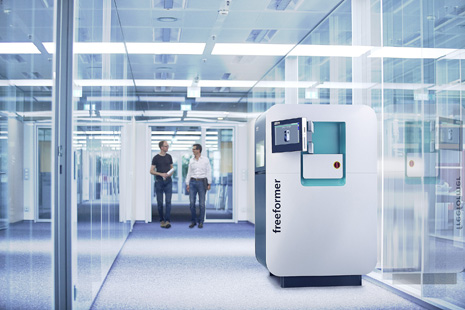
Amongst all the usual 3D printing and injection moulding machines was something a bit different from German machine construction company Arburg. It was showcasing the Freeformer – which it claims is a completely new patented process for additive manufacturing in that it is producing parts through the layer-by-layer application of plastic droplets. So with its Arburg Plastic Freeforming (AKF) it can produce one-off parts and small-volume batches using standard granulates with no need for a mould.
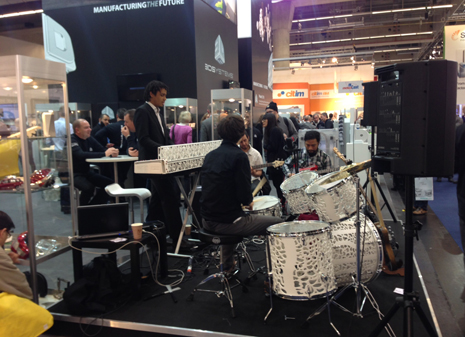
Being the giant that it is 3D Systems had a giant stand with enough room for a small band playing in the corner. Using 3D printed instruments, musicians were providing music for visitors to bop along to. It was rather good.
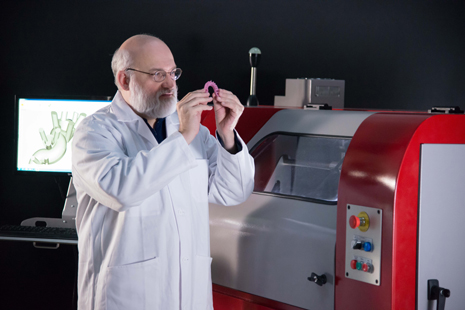
From the big boys I also discovered a few newbies including Prodways. This French company is just one month old and presented its new range of 3D printers exclusively at Euromold.
The Prodways’ technology, developed by André-Luc Allanic (above), a specialist and pioneer in 3D printing, is based on MOVINGLight technology. The main advantage is that the machines can produce hundreds of tiny parts in just a few hours at a resolution of less than 35 microns. Also, despite the size of the part – it requires absolutely no finishing when it comes out of the machine. To hear Andre-Luc Allanic talk about it himself watch this video.
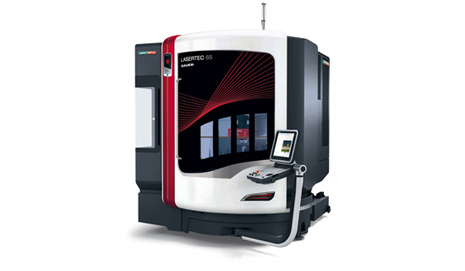
Then a hybrid machine that caught my eye mostly because there were so many people milling around it was the LASERTEC 65 Shape, developed by Sauer Lasertec, a member of the DMG Mori Seiki AG. This machine integrates additive manufacturing into a high-tech 5-axis milling machine. The company claims that by combining both – additive manufacturing via powder nozzle and the traditional cutting method in one machine – totally new applications and geometries would be possible.
Look out for the Euromold report in our forthcoming Dec/Jan issue.






